 Thank you to my friend Berthold Gambrel for coming up with the idea for today’s post.
Thank you to my friend Berthold Gambrel for coming up with the idea for today’s post.
For anyone who hasn’t already heard of this term, a Mary Sue is a (female) character who is so idealized that she’s honestly too good to be true. Picture someone who is good-looking, smart, athletic, talented, charming, and good at virtually everything she tries.
If she has any flaws at all, those weaknesses are trivial things that don’t make a real difference in her daily life or current quest at all. For example, she might have a terrible singing voice, but her storyline has nothing at all to do with whether or not she can sing.
You’ve probably noticed that I used feminine pronouns in those last two paragraphs. I did this on purpose. In all of the years I’ve been reading various fiction genres – including, and sometimes especially, the science fiction and fantasy genres – I’ve never seen a male character being accused of being a Mary Sue even when he meets all of the criteria for this label. The very thought of a Marty Stu existing is controversial in some circles.
Sometimes I’ve seen people use the term Mary Sue to describe an author’s possibly subconscious desire to be loved and admired by everyone they meet. There have been times when certain critics of various well-known series have insisted that a Mary Sue character was written as a projection of everything the author wished she could be.
Intention Isn’t Everything
While the original Mary Sue character was first written as a lighthearted parody of unrealistic characters in Star Trek fan fiction, she’s since evolved into something else entirely.
If we lived in a world where Marty Stu was thrown around as easily as Mary Sue, I’d say that both of them were intended to shed light on the dangers of writing flat characters. As someone who has written hundreds of reviews over the years, I have seen plenty of books whose characters never felt like real people. It’s not easy to create a character who appears to have all of the same hopes, dreams, fears, and realistic personality flaws that you’d find in any random person walking down the street.
When a term is created to criticize one group of people for doing something while ignoring other groups that do the same thing, the original intentions quickly become less relevant over time.
Double Standards
What bothers me the most about Mary Sue as a concept are the double standards it enforces and the disproportionate amount of hate Mary Sues receive when compared to their male counterparts.
Yes, stories that portray a female main character as someone who has few if any flaws and who is somehow good at everything she tries aren’t an example of good writing.
This applies to every single even vaguely humanoid protagonist who has ever been invented, though, as well as quite a few who were created to be as unlike humans as possible.
Which gender they identify as doesn’t matter at all. I’ve sat through far too many stories about Marty Stus who were just as unbelievable as any Mary Sue has ever been. Yet I can’t remember the last time I saw or heard someone use the phrase Marty Stu in real life or complain about how unrealistic his character development was.
If we lived in a world where this wasn’t the case, I’d be much more willing to use the phrase Mary Sue to describe characters who were poorly developed or seemed to be an idealized version of who the author wishes he or she could be. These are issues that I occasionally see pop up in the books, movies, and other forms of entertainment I review, but they are in no way limited to one specific gender. They happen everywhere.
Yes, It’s Sexist
It is for all of the reasons listed above that I believe Mary Sue is a sexist concept even though I don’t think that most people who use that phrase are purposefully trying to be sexist.
Sexism – and many other forms of prejudice – are so deeply ingrained into western society that it’s easy to overlook the milder examples of them like this one. Honestly, I know that I’ve occasionally said things that rubbed other people the wrong way because I wasn’t aware of why a certain phrase or topic was a sore spot for a particular group.
I can’t and won’t speak for every woman here, but my reaction to someone using this phrase wouldn’t be an angry one. The first thing I’d assume would be that they’ve never thought about the different ways characters who behave in very similar ways are treated based on their gender or why it’s a problem to hold one gender to a much stricter standard than you’d expect from another gender. This would be a teaching moment, just like I’d hope that someone else would be willing to explain to me why they found something I said to be offensive if I accidentally crossed the line when talking to them.



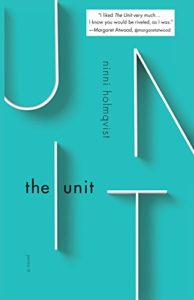
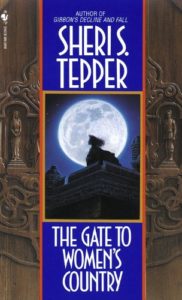

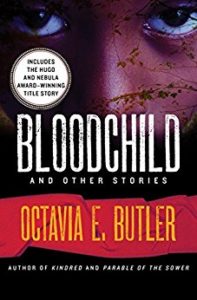


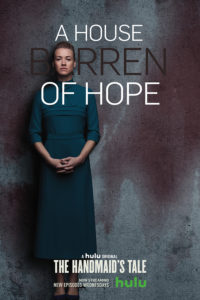 This post includes spoilers for “A Woman’s Place” (Season 1, Episode 6) of
This post includes spoilers for “A Woman’s Place” (Season 1, Episode 6) of 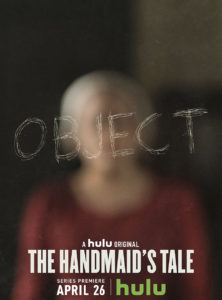 Offred
Offred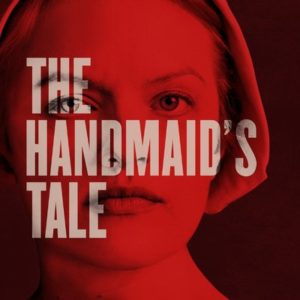 There are only two days left until The Handmaid’s Tale premiers on Hulu.
There are only two days left until The Handmaid’s Tale premiers on Hulu. Today I wanted to talk about something that annoys me a little bit every time I go shopping for new exercise equipment.
Today I wanted to talk about something that annoys me a little bit every time I go shopping for new exercise equipment. ake any sense.
ake any sense.

